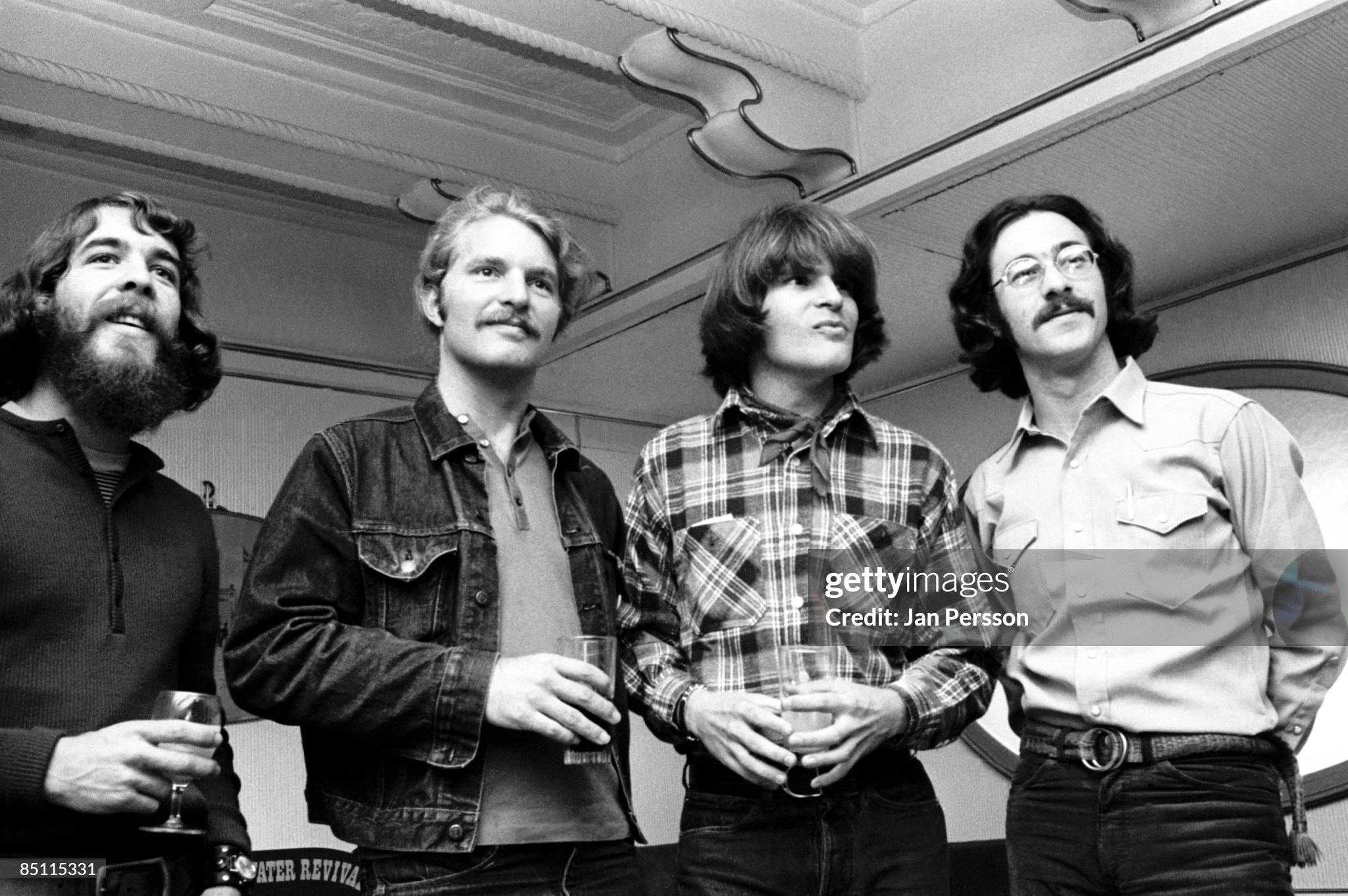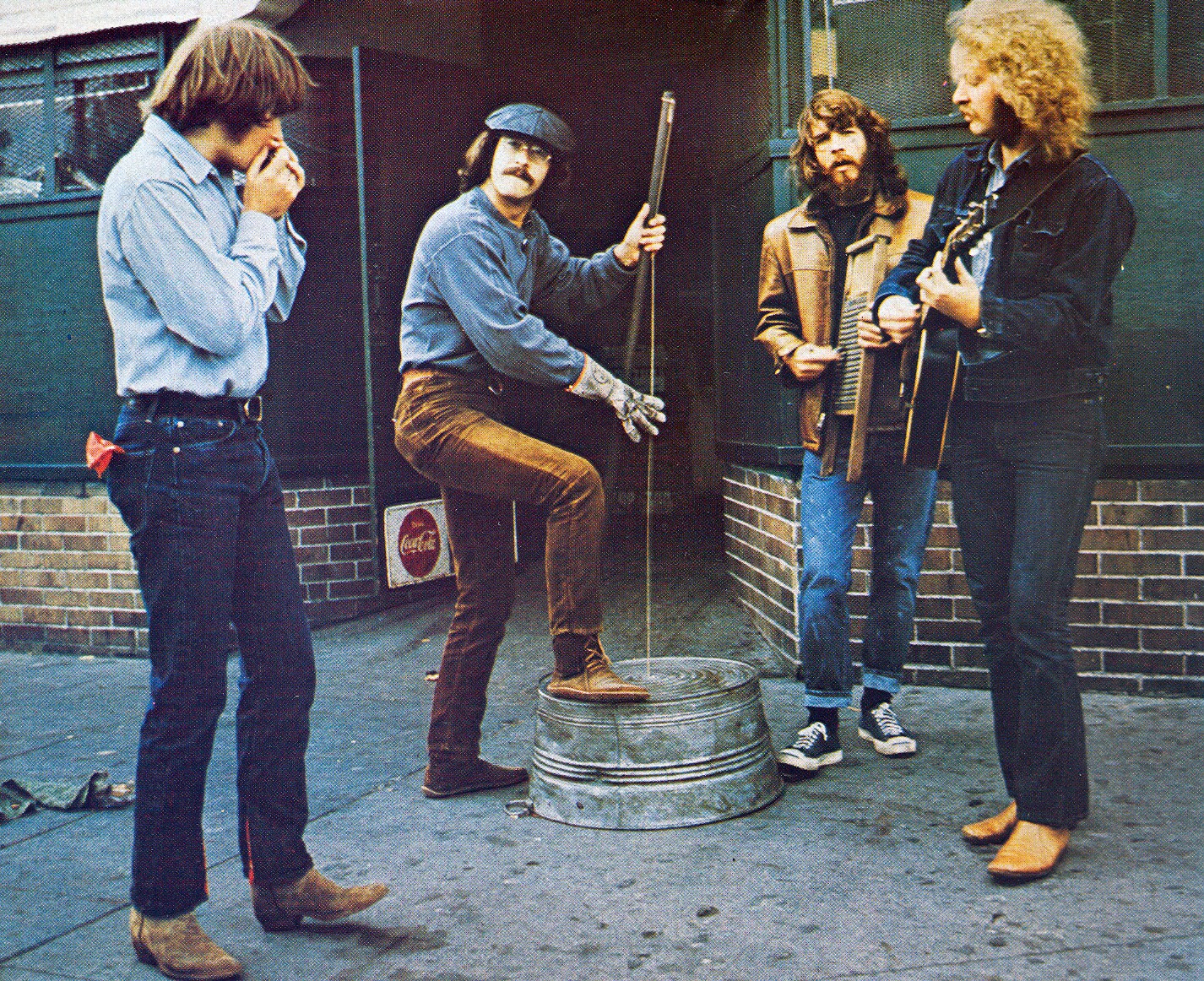
A poignant reflection on societal rejection and misunderstood solitude.
Released in 1968 as the debut single from the legendary American rock band, Creedence Clearwater Revival, “Porterville” quietly paved the path for a musical journey that would soon captivate an entire generation. Appearing initially as a modest single under the Scorpio Records label, “Porterville” later found its way onto their self-titled debut album, Creedence Clearwater Revival, an album that set the stage for greater things to come. Although it did not immediately achieve mainstream chart success upon its release, the song holds a special place in the hearts of devoted fans, resonating deeply with those who discovered it in quieter, introspective moments. In hindsight, this track serves as a subtle yet profound cornerstone in CCR’s extraordinary career.
Behind its evocative melody and earnest vocal delivery by John Fogerty lies a deeply emotional narrative, steeped in isolation and social ostracism. “Porterville” tells the tale of a man burdened by his father’s transgressions—a poignant figure unjustly condemned by his community due to familial stigma. Fogerty’s storytelling here is powerful and intimate, casting a stark light upon a common tragedy: how easily society judges and alienates the innocent through no fault of their own. This theme of misunderstood solitude and quiet rebellion would later become hallmark traits of CCR’s lyrical style.
For many older listeners who recall hearing “Porterville” in dimly lit coffeehouses or through crackling transistor radios on late-night broadcasts, this song conjures potent memories of youthful contemplation. It invites reflections on personal struggles against unfair judgment or isolation endured within tight-knit communities. The song’s haunting atmosphere—marked by driving guitar chords, rustic rhythms, and Fogerty’s gritty vocal performance—stays with listeners long after its final note fades away.
Although “Porterville” did not instantly catapult Creedence Clearwater Revival into national fame—that honor would soon belong to later classics like “Proud Mary” or “Bad Moon Rising”—it nevertheless marked a significant moment of artistic honesty and lyrical maturity for the band. The track revealed John Fogerty’s emerging gift as a storyteller capable of touching raw nerves and tender memories alike. It was an honest portrayal of small-town struggles, resonating particularly well with listeners who themselves knew too well the confines of rural life or small-town judgments.
Over decades since its initial release, “Porterville” has been rediscovered by countless individuals seeking solace within music that speaks truthfully about difficult human experiences. For longtime fans now reminiscing about their younger days, this early Creedence piece serves as a bittersweet reminder of life’s harsher realities—a reflection on innocence unfairly tarnished and quiet dignity amidst unjust blame.
Today, revisiting “Porterville” becomes more than simply replaying an old record; it is akin to opening a cherished yet slightly worn photo album—each verse evoking sepia-toned images of days long past. The song remains timeless precisely because its themes remain universal: loneliness born from misunderstanding, resilience amid criticism, and quiet courage in facing life’s persistent trials.
Indeed, Creedence Clearwater Revival’s “Porterville,” though never topping charts upon its initial release, endures emotionally beyond mere commercial success. It symbolizes something deeper—the capacity of music to articulate truths seldom spoken aloud—and stands as testament to CCR’s authenticity and enduring legacy among older generations who lived through those thoughtful times.
